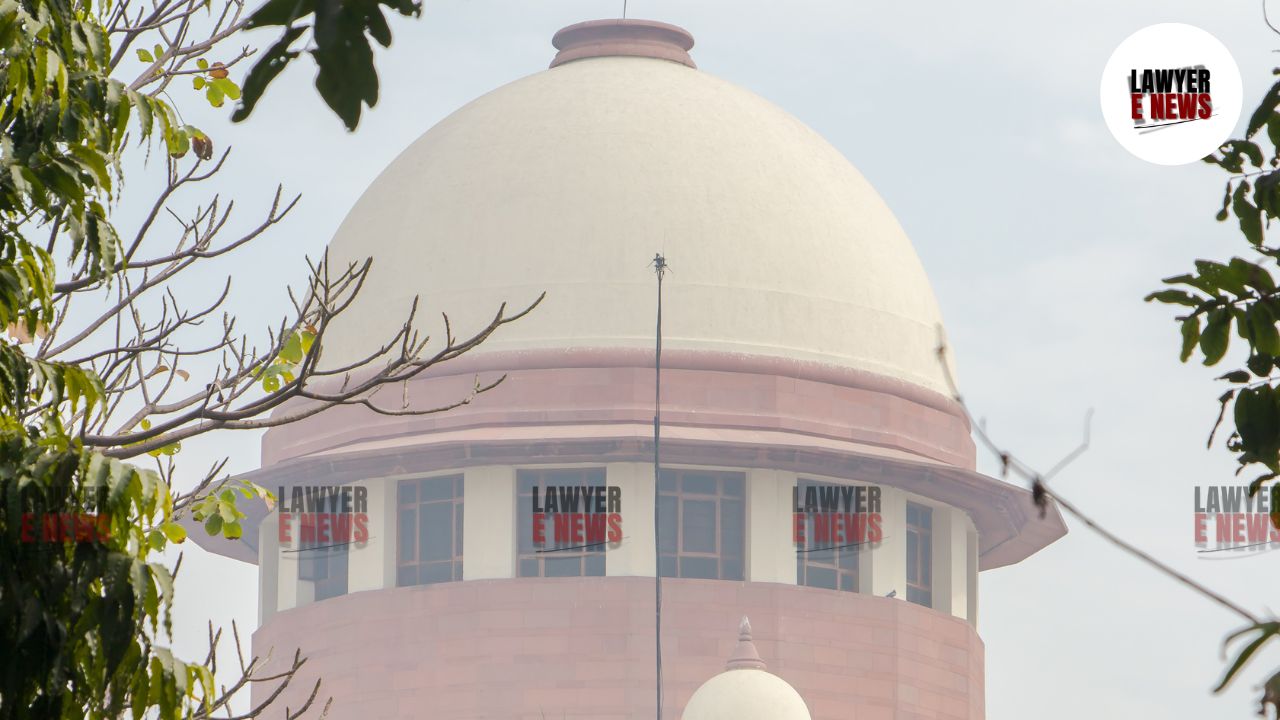-
by Admin
15 February 2026 5:35 AM



Supreme Court of India ruled in Lalu Yadav vs. The State of Uttar Pradesh & Ors., quashing an FIR registered under Sections 376 (rape) and 313 (causing miscarriage without consent) of the Indian Penal Code. The Court held that a long-term consensual relationship, where the complainant lived with the accused as husband and wife, cannot be construed as rape based on a false promise of marriage. The Court’s decision provided clarity on the scope of Section 376 IPC, emphasizing that mere refusal to marry after a prolonged relationship does not automatically constitute rape under a false promise of marriage.
The appellant, Lalu Yadav, was accused of rape by the complainant, who alleged that he had established a physical relationship with her on the pretext of marriage. The relationship between Yadav and the complainant, Preeti, began around 2013 when she was a high school student. Over the years, they lived together as husband and wife, with the complainant's family aware of the relationship. Preeti claimed that she became pregnant twice during the relationship and that Yadav forced her to undergo abortions, promising marriage after securing a job.
An FIR was filed on February 21, 2018, under Sections 376 and 313 IPC, alleging that Yadav had deceived the complainant with false promises of marriage, which led to their physical relationship and two abortions. The complaint mentioned that Yadav, after securing a job, refused to marry her, leading to her filing the case.
The appellant sought to quash the FIR in the Allahabad High Court, but his plea was dismissed. He then approached the Supreme Court, arguing that the relationship was consensual and could not be classified as rape merely because the promise to marry was not fulfilled.
The Supreme Court was tasked with determining whether the allegations in the FIR, taken at face value, amounted to rape under Section 376 IPC or indicated a consensual relationship. The key issues were:
Whether the physical relationship was based on a false promise of marriage.
Whether the prolonged cohabitation and consensual nature of the relationship negated the allegation of rape.
The impact of the five-year delay in filing the FIR on the credibility of the allegations.
Whether the allegation of forced abortions under Section 313 IPC held any merit.
Contradiction Between "No Consent" and "Living as Husband and Wife": The Court noted a key contradiction in the FIR. The complainant alleged that Yadav established physical relations "without her consent" while simultaneously claiming that they had lived together as husband and wife for five years. The Court observed that such statements were inconsistent and indicated a consensual relationship rather than one based on coercion or deceit.
Long-Term Consensual Relationship: The Court emphasized that the couple's long-term cohabitation, during which they visited hotels and lived together with the knowledge of the complainant's family, pointed towards a consensual relationship. It rejected the notion that the complainant had consented under a misconception of fact (i.e., a false promise of marriage) as defined under Section 90 IPC. The Court remarked, "The facts reveal a consensual physical relationship during which the complainant addressed the appellant as her husband."
Delay in Filing the FIR: The Court also considered the significant delay in filing the FIR, which was lodged over five years after the relationship began. The delay weakened the complainant’s case, especially when the relationship was consensual for an extended period. The Court noted that such delays in reporting raise doubts about the authenticity of the allegations and are relevant when assessing whether a prima facie case of rape is made out.
Omission of Section 313 IPC Charges: During the pendency of the case, the investigation into the allegations of forced abortions under Section 313 IPC was completed. The police found no evidence to support these claims, leading to the omission of this charge. This left only the charge of rape under Section 376 IPC for consideration.
Legal Precedents: The Supreme Court referred to several precedents, including State of Haryana v. Bhajan Lal and Shivashankar alias Shiva v. State of Karnataka, which laid down guidelines for the quashing of FIRs where allegations do not prima facie constitute an offense. In Shivashankar, the Court had held that a false promise of marriage, without more, cannot sustain a rape charge in the context of a long-term consensual relationship. The Court found that the facts of the present case were similar.
The Supreme Court quashed the FIR, finding that no prima facie case of rape was made out. The Court concluded that the complainant's consent to the relationship was not based on a misconception of fact. It highlighted that the prolonged nature of the relationship, coupled with the complainant's active participation and family knowledge, indicated that the relationship was consensual. The Court also took into account the fact that the complainant continued to live with Yadav even after the alleged false promise of marriage, further negating the claim that the consent was obtained deceitfully.
The Court cited the State of Haryana v. Bhajan Lal guidelines for quashing FIRs and stated that this case fell within the categories where the inherent powers of the Court under Section 482 of the Code of Criminal Procedure should be invoked to prevent abuse of the process of law.
The Supreme Court set aside the High Court's decision and quashed FIR No. 28/2018 dated February 21, 2018, registered at Police Station Nandganj, Ghazipur. It ruled that the complainant’s allegations, taken at face value, did not constitute rape under Section 376 IPC, as the relationship was consensual. The Court also affirmed that the subsequent refusal to marry, after a long-term consensual relationship, does not amount to rape. The appeal was allowed, and the case was dismissed.
Date of Decision: October 16, 2024
Lalu Yadav vs. The State of Uttar Pradesh & Ors.
